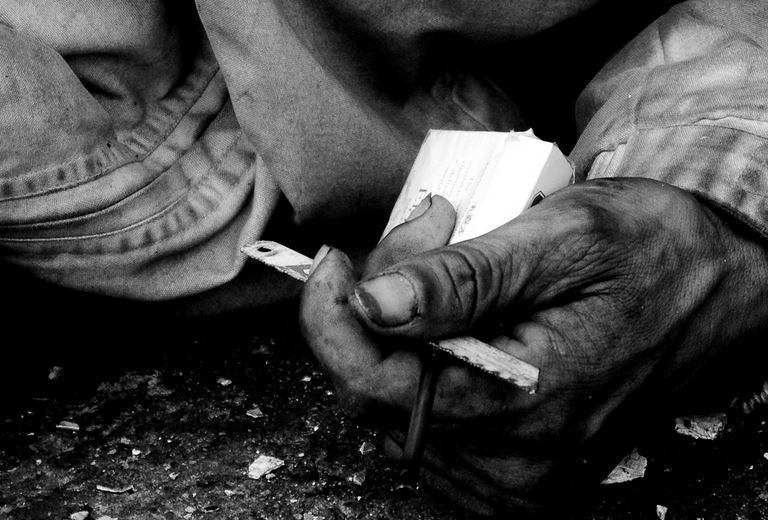580 wis ji‑criminal 580 580 attempt — § 939.32 the defendant is charged with attempted (name intended crime) . statutory definition
580 WIS JI‑CRIMINAL 580
580 ATTEMPT — § 939.32
The defendant is charged with attempted (name intended crime) .
Statutory Definition of the Crime
The crime of attempted (name intended crime) , as defined in § 939.32
and § 1 of the Criminal Code of Wisconsin, is committed by one who,
with intent to commit (name intended crime) , does acts toward the
commission of that crime which demonstrate unequivocally, under all of
the circumstances, that he or she had formed that intent and would
commit the crime except for the intervention of another person or some
other extraneous factor.
State's Burden of Proof
Before you may find the defendant guilty of this offense, the State
must prove by evidence which satisfies you beyond a reasonable doubt
that the following two elements2 were present.
Elements of the Crime That the State Must Prove
1. The first element of attempted (name intended crime) requires that
the defendant intended3 to commit the crime of (name intended crime) .
The crime of (name intended crime) is committed by one who
LIST THE ELEMENTS OF THE INTENDED CRIME AS IDENTIFIED IN THE UNIFORM
INSTRUCTION. ADD DEFINITIONS FROM THE UNIFORM INSTRUCTIONS AS
NECESSARY.4
The crime charged against the defendant in this case, however, is not
(name intended crime) as defined but an attempt to commit the crime of
(name intended crime) .
2. The second element of attempted (name intended crime) requires that
the defendant did acts toward the commission of the crime of (name
intended crime) which demonstrate unequivocally, under all of the
circumstances, that the defendant intended to and would have committed
the crime of (name intended crime) except for the intervention of
another person or some other extraneous factor.5
Meaning of "Unequivocally"
"Unequivocally" means that no other inference or conclusion can
reasonably and fairly be drawn from the defendant's acts, under the
circumstances.6
Meaning of "Another Person"
"Another person" means anyone but the defendant and may include the
intended victim.
Meaning of "Extraneous Factor"
An "extraneous factor"7 is something outside the knowledge of the
defendant or outside the defendant's control.8
Deciding About Intent
You cannot look into a person's mind to find intent. Intent must be
found, if found at all, from the defendant's acts, words, and
statements, if any, and from all the facts and circumstances in this
case bearing upon intent.
Jury's Decision
If you are satisfied beyond a reasonable doubt that all the elements
of attempted (name intended crime) have been proved, you should find
the defendant guilty.
If you are not so satisfied, you must find the defendant not guilty.
COMMENT
Wis JI‑Criminal 580 was originally published in 1967 and revised in
1979, 1988, 1995, 2001, and 2002. The 2002 revision involved
nonsubstantive changes to the text and revision of the directions in
the text at footnote 4. This revision was approved by the Committee in
December 2012; it updated the Comment.
Subsection (1) of § 939.32 states the general rule that attempt
liability applies only to felonies, plus four specified misdemeanors:
§ 940.19 Battery; § 940.195 Battery to an unborn child; § 943.20
Theft; and, § 943.74 Theft of farm-raised fish. These subsections
enumerate all the offenses which may be prosecuted as 'attempts'."
State v. Cvorovic, 158 Wis.2d 630, 634, 462 N.W.2d 897 (Ct. App.
1990). Thus, "attempted fourth degree sexual assault" is not a
prosecutable offense. Ibid.
Several offenses are defined to include attempts as violations of the
statute involved. These are included in the list found at subsections
(1)(c) through (g) of § 939.32. Uniform instructions for these
offenses suggest building in the substance of Wis JI‑Criminal 580 in
summary form. See, for example, Wis JI‑Criminal 1290-1296,
Intimidation of Victims and Witnesses under §§ 940.42‑.46; Wis
JI‑Criminal 2134, Child Enticement under § 948.07; and Wis JI‑Criminal
6030, Possession of a Controlled Substance under § 961.41.
The general rule is that the maximum fine and maximum term of
imprisonment for an attempt is half that for the completed crime. §
939.32(1g)(a) and (b)1. The maximum penalty for attempts to commit
Class A felonies is that for a Class B felony. Subsections (1g)(b)2.
specifies how penalty enhancement provisions affect the penalties.
Subsection (1m) specifies how bifurcated sentences are to be
structured for attempts.
An issue that has received extensive attention in connection with
attempt is commonly discussed in terms of "impossibility": Is a person
guilty of an attempt if it was "impossible" for the crime to be
committed under the circumstances? This issue was addressed in State
v. Kordas, 191 Wis.2d 124, 528 N.W.2d 483 (Ct. App. 1993), where the
defendant was charged with an attempt to receive stolen property based
on his buying a motorcycle from an undercover police officer. The
police had made representations to Kordas that the cycle was stolen
when, in fact, it had been provided to the Milwaukee Police Department
for educational purposes. The trial court dismissed the charge,
holding that it was "legally impossible" to attempt to receive stolen
property where, in fact, the property is not stolen. The court of
appeals reversed:
. . . Kordas did in fact possess the necessary criminal intent to
commit the crime of receiving stolen property. The extraneous factor C
that the motorcycle was not stolen C was unknown to him and had no
impact on his intent. Thus the legal impossibility not apparent to
Kordas should not absolve him from the offense of attempt to commit
the crime he intended. 191 Wis.2d 124, 130 (citations omitted).
On the crime of attempt generally, see State v. Damms, 9 Wis.2d 183,
100 N.W.2d 592 (1960), and Oakley v. State, 22 Wis.2d 298, 125 N.W.2d
657 (1964). Also see: State v. Henthorn, 218 Wis.2d 526, 581 N.W.2d
544 (Ct. App. 1998), finding the evidence insufficient to support a
charge of attempt to obtain a controlled substance by fraud; and State
v. Briggs, 218 Wis.2d 61, 579 N.W.2d 783 (Ct. App. 1998), holding that
the crime of attempted felony murder does not exist.
1. For example, if the crime charged is attempted burglary, the first
part of this sentence would read: "The crime of attempted burglary, as
defined in § 939.32 and § 943.10 of the Criminal Code of Wisconsin . .
."
2. The instruction identifies two elements for this offense: (1)
intent to commit the crime; and (2) acts which demonstrate
unequivocally that the defendant intended to commit and would have
committed the crime except for the intervention of another person or
some other extraneous factor.
In Berry v. State, 90 Wis.2d 316, 280 N.W.2d 204 (1979), the Wisconsin
Supreme Court agreed with this analysis by reversing a decision of the
Wisconsin Court of Appeals (see Berry v. State, 87 Wis.2d 85, 273
N.W.2d 376 (Ct. App. 1978)), which had concluded that proof of failure
to complete the crime was an essential element of attempt. The supreme
court held that "[f]ailure, if and by whatever means the actor's
efforts are frustrated, is relevant only insofar as it may negate any
inference that the actor did in fact possess the necessary criminal
intent to commit the crime in question." 90 Wis.2d 316, 327. This
conclusion is consistent with this instruction.
3. See State v. Weeks, 165 Wis.2d 200, 477 N.W.2d 642 (Ct. App. 1991),
which discusses the meaning of the intent required for attempts after
the 1989 revision of the statute defining "intent." (See § 939.23,
discussed in Wis JI‑Criminal 923A and 923B.)
4. List the elements set forth in the uniform instruction for the
intended crime. Elements beginning with "the defendant" should be
modified by deleting those words. Other minor modifications may also
be required. The defendant charged with an attempt will not have
completed the crime and therefore will not have committed each of the
elements. However, the defendant must have intended that all elements
of the crime be completed and must have acted with the intent and
knowledge required for the completed crime. The Committee recommends
including definitions from the uniform instructions when requested or
when the evidence has focused on an issue addressed by a definition.
Note that some definitions include requirements that are of equal
importance to elements of crimes. See, for example, the definitions of
"sexual contact" provided in Wis JI‑Criminal 1200A and 2101A.
See Wis JI‑Criminal 581 EXAMPLE and 582 EXAMPLE for illustrations of
how the elements of burglary and armed robbery would be integrated
with the general pattern instruction for attempt cases involving
attempted burglary and attempted armed robbery. Wis JI‑Criminal 1070
provides a model for attempted first degree intentional homicide.
5. The presence of an "extraneous factor" is not a fact which must be
separately proved by the state. Rather, it helps define the intent
which the defendant must have. See State v. Stewart, 143 Wis.2d 28,
420 N.W.2d 44 (1988), discussed in note 8, below.
"Extraneous factor" is retained in the instruction for several
reasons: it is part of the statutory definition; it does help the jury
understand the intent required; and, as a practical matter, most
attempt cases do involve an "extraneous factor" that has interrupted
the defendant's activities.
The "extraneous factor" issue is discussed in State v. Damms, supra,
and Adams v. State, 57 Wis.2d 515, 204 N.W.2d 657 (1973).
6. The "unequivocal act" requirement is discussed in State v. Damms, 9
Wis.2d 183, 100 N.W.2d 592 (1960), and Bethards v. State, 45 Wis.2d
606, 173 N.W.2d 634 (1970).
7. See note 5, supra.
8. The version of Wis JI Criminal 580 in effect from 1967 to the time
of the 1988 revision included a footnote on "voluntary desistance" at
this point in the text. The note suggested that:
[w]here there is evidence that the defendant voluntarily desisted, or
there is evidence that because of facts that were known to the
defendant, it was impossible for him to commit the crime, insert the
following paragraph in the instruction:
If the defendant did not commit the crime of (because he voluntarily
desisted) or (because of facts, known to the defendant, which made it
impossible for him to commit the crime), he is not guilty of attempted
.
Wis JI‑Criminal 580 © 1980.
This reference was deleted in 1988 because of the decision of the
Wisconsin Supreme Court in State v. Stewart, 143 Wis.2d 28, 420 N.W.2d
44 (1988). In Stewart, the defendant and Moore confronted a person in
a semi‑enclosed bus stop shelter. They demanded that the person "give
us some change" three or four times in an increasingly loud voice. At
one point, Stewart reached into his coat, whereupon Moore told him to
"put that gun away." Then a third associate, Levy, stepped into the
bus shelter and said to Stewart and Moore: "Come on, let's go." The
three men left, though Moore later returned and made small talk with
the person from whom money had been requested.
The Wisconsin Supreme Court affirmed Stewart's conviction for
attempted robbery. The court did not decide the case on the more
narrow grounds of sufficiency of the evidence or whether the victim's
resistance and Levy's intervention constituted an "extraneous factor."
Rather, the court stated a broader rationale, interpreting § 939.32(3)
as follows:
[T]o prove attempt, the state must prove an intent to commit a
specific crime accompanied by sufficient acts to demonstrate
unequivocally that it was improbable the accused would desist of his
or her own free will. The intervention of another person or some other
extraneous factor that prevents the accused from completing the crime
is not an element of the crime of attempt. If the individual, acting
with the requisite intent, commits sufficient acts to constitute an
attempt, voluntary abandonment of the crime after that point is not a
defense.
143 Wis.2d, 28, 31.
The court dealt with three issues raised by the defendant. First, the
court found the evidence was sufficient to support "the first element
of attempted robbery – intent to commit robbery." 143 Wis.2d 28, 37.
Second, the court found that Stewart "went far enough" in pursuance of
this intent to constitute an attempt. The court rejected Stewart's
contention that:
. . . sufficient acts are not committed until the intervention of
another person or extraneous factor prevents completion of the crime.
If there is no such intervention, the defendant argues, the acts taken
toward the criminal end are too few to constitute an attempt. In
effect the defendant argues that § 939.32(3) requires the state to
prove that "the intervention of another person or some other
extraneous factor" impeded the defendant's completion of the crime.
143 Wis.2d 28, 38.
Rather, the court concluded that the statute does not require that the
defendant's conduct be interrupted by another person or some other
extraneous factor:
When the accused's acts demonstrate unequivocally that the accused
will continue unless interrupted, that is, when the acts demonstrate
that the accused will probably not desist from the criminal course,
then the accused's dangerousness is manifest. Accordingly we reject
defendant's assertion that § 939.32(3) requires the state to prove the
intervention of another person or an extraneous factor.
The purpose of the language in § 939.32(3) relating to intervention of
another person and extraneous factor is to denote that the actor must
have gone far enough toward completion of the crime to make it
improbable that he would change his mind and desist. The conduct
element of § 939.32(3) is satisfied when the accused engages in
conduct which demonstrates that only a circumstance beyond the
accused's control would prevent the crime, whether or not such a
circumstance actually occurs. An attempt occurs when the accused's
acts move beyond the incubation period for the crime, that is, the
time during which the accused has formed an intent to commit the crime
but has not committed enough acts and may still change his mind and
desist. In other words the statute requires a judgment in each case
that the accused has committed sufficient acts that it is unlikely
that he would have voluntarily desisted from commission of the crime.
143 Wis.2d 28, 41‑42.
The third issue considered was Stewart's claim that the "voluntary
abandonment of criminal conduct after the attempt was complete but
before the crime of robbery was consummated excuses him from criminal
liability." 143 Wis.2d 28, 44. The court held that § 939.32(3) does
not expressly recognize voluntary abandonment as a defense and further
held that State v. Hamiel, 92 Wis.2d 656, 285 N.W.2d 639 (1979), did
not embrace such a defense either. In the absence of express
legislative recognition of the voluntary abandonment (or "voluntary
desistance") defense, the court held it was not proper for the court
to create it.
Therefore, after Stewart, it is clear that once the defendant "has
gone far enough" to constitute an attempt, a decision to end the
conduct will not relieve the person of criminal liability for an
attempt to commit a crime. Deciding when the attempt has really
occurred will continue to be a potentially difficult factual question
after Stewart, which the jury will have to resolve by reference to the
legal standard provided by § 939.32: Do the defendant's acts
demonstrate unequivocally that he intended to commit a crime?
© 2013, Regents, Univ. of Wis. (Rel. No. 51—4/2013)
4
 NOTIFICATION OF CHANGE OF ADDRESS ON A PERSONAL LICENCE
NOTIFICATION OF CHANGE OF ADDRESS ON A PERSONAL LICENCE CRACK TUDO O QUE SABÍAMOS SOBRE ELE ESTAVA
CRACK TUDO O QUE SABÍAMOS SOBRE ELE ESTAVA 9º ENCUENTRO DE VIDAS CIENTÍFICAS EN EUREKA! ZIENTZIA MUSEOA
9º ENCUENTRO DE VIDAS CIENTÍFICAS EN EUREKA! ZIENTZIA MUSEOA REGLAMENTO INTERNO DE LA CONTRALORIA MUNICIPAL DE TIZAPAN EL
REGLAMENTO INTERNO DE LA CONTRALORIA MUNICIPAL DE TIZAPAN EL file.axd?file=2021%2F1%2Flistado++2020-2021+Radio+(2)
file.axd?file=2021%2F1%2Flistado++2020-2021+Radio+(2) FORMATO IDENTIFICACIÓN CUENTA RECEPTORA RECURSOS DEL SISTEMA GENERAL DE
FORMATO IDENTIFICACIÓN CUENTA RECEPTORA RECURSOS DEL SISTEMA GENERAL DE CHAPTER INSTALLATIONS IN THIS DOCUMENT YOU WILL FIND TWO
CHAPTER INSTALLATIONS IN THIS DOCUMENT YOU WILL FIND TWO